What’s next for Diddy after guilty verdict, no bail
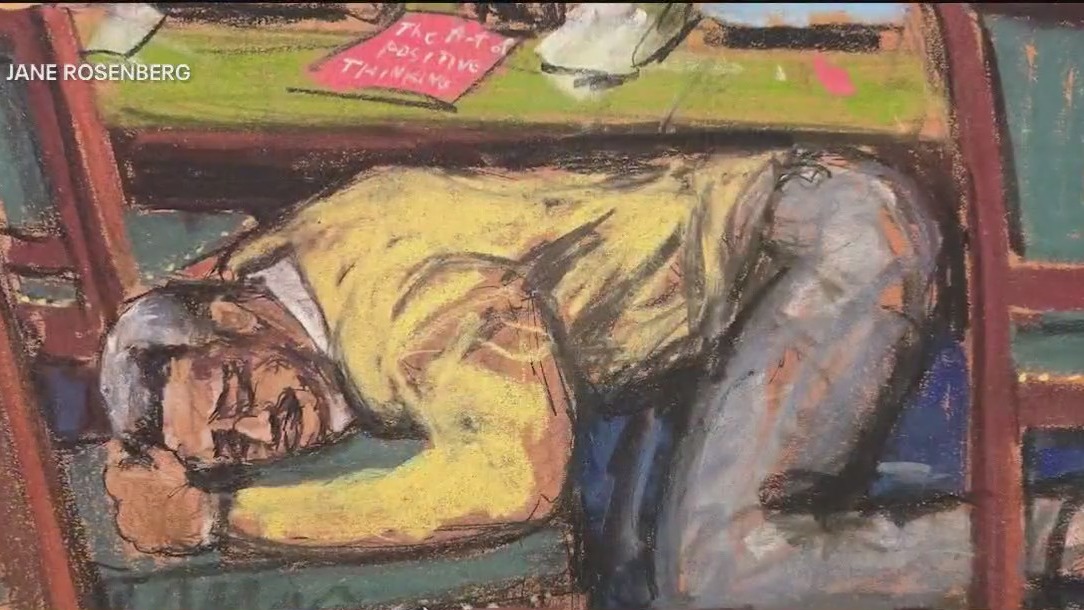
How long could Diddy remain behind bars?
Sean "Diddy" Combs is being held at the Metropolitan Detention Center in Brooklyn, a federal facility known for harsh conditions. FOX 5 NY's Briella Tomassetti has a look at what's next.
NEW YORK CITY - Sean "Diddy" Combs is now a convicted federal defendant, found guilty of violating the Mann Act, which makes it a crime to transport people across state lines for illegal sexual activity.
In this case, prosecutors said he arranged travel for women and sex workers to attend what they called "Freak-Off" parties, including trips involving his ex-girlfriend Cassie Ventura and another woman known as "Jane."
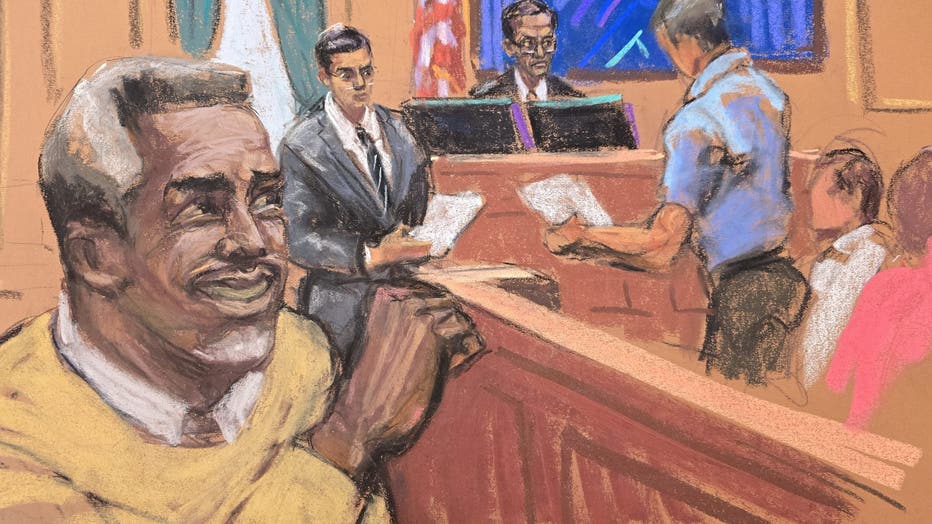
The jury did not convict him on the most serious charges, including racketeering and sex trafficking. His legal team called the outcome a "big win," saying the jury rejected the government’s claim that Diddy ran a criminal enterprise based on violence and coercion.
What they're saying:
Now, his attorneys are pushing to speed up sentencing. They argue this case is different from most Mann Act prosecutions, which usually involve minors or human trafficking. Instead, they say the conduct involved consensual adult sex.
The government has agreed to work with the defense to set a schedule.
Timeline:
Both sides are expected to meet with probation officers and propose a plan by Tuesday, July 8. Sentencing is currently scheduled for October 3, but that date could change.
What happened in the trial?
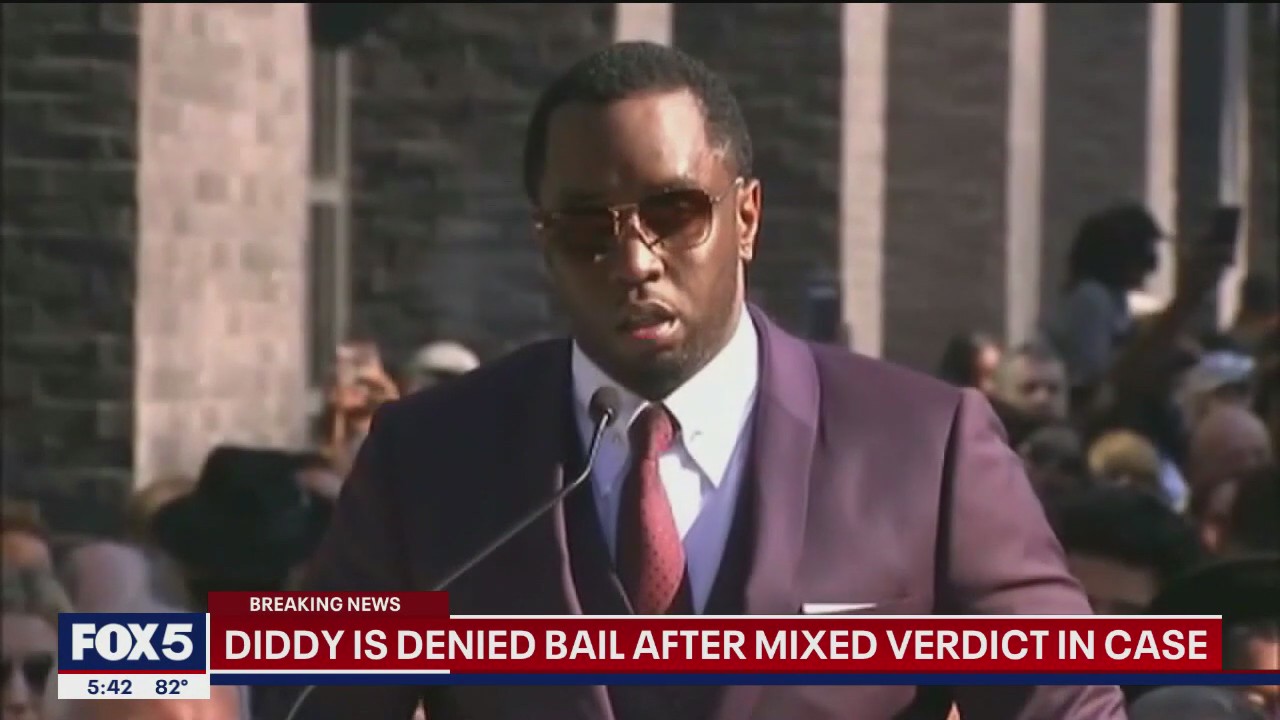
Diddy case timeline: How we got here
FOX 5 NY's Antwan Lewis provides a timeline on the case against Sean "Diddy" Combs, leading up to the verdict reached earlier today.
The six-week trial featured explosive testimony from 34 witnesses, including two women: Cassie Ventura and an anonymous accuser known as "Jane," who described being coerced into dayslong "Freak-Off" parties with escorts.
Graphic hotel footage and flight records corroborated elements of their accounts.
Diddy’s team rested without calling any witnesses, including Diddy himself.
Where is Diddy now?
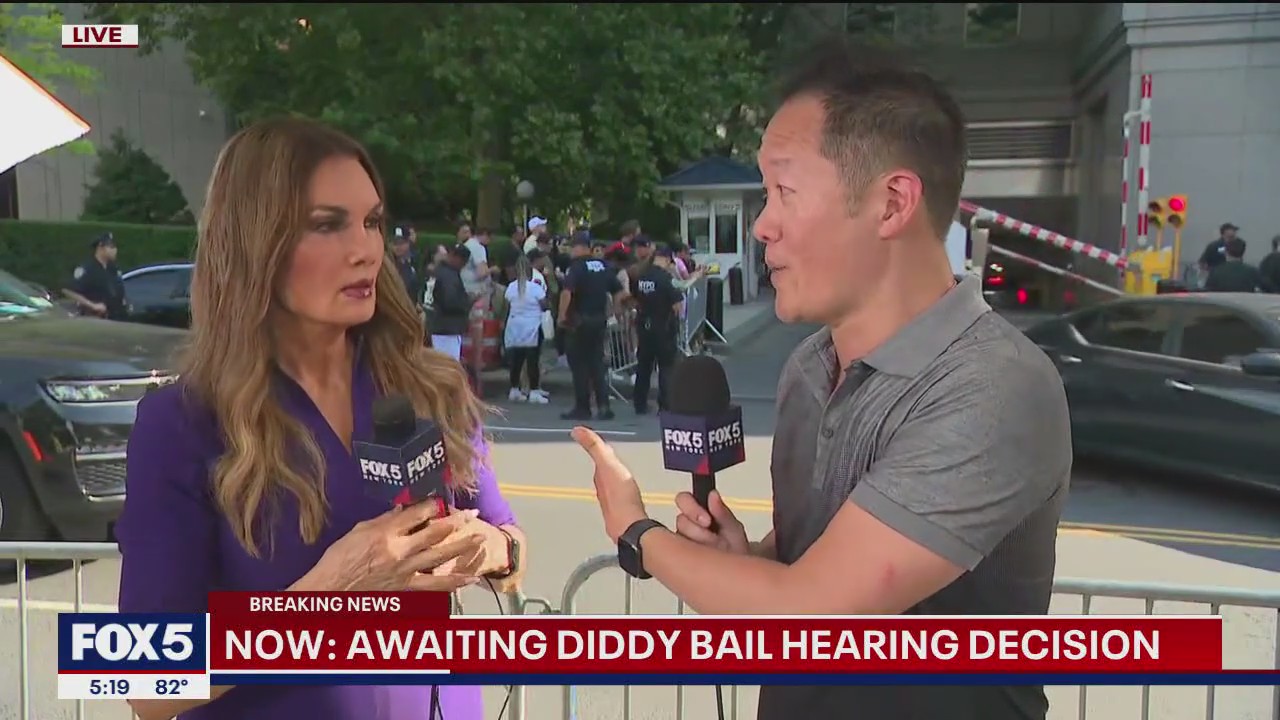
Diddy denied bond, likely headed back to jail
Sean "Diddy" Combs was denied bond after a jury acquitted him on racketeering conspiracy and sex trafficking charges, but convicted him of lesser charges of prostitution.
Diddy is being held at the Metropolitan Detention Center in Brooklyn, a federal facility known for harsh conditions.
Judges denied bail three separate times during the trial, including after his conviction, citing his access to wealth, threats to witnesses, and past violence.
He will remain there until sentencing.
‘Transportation to engage in prostitution charge’: What is the Mann Act?

Diddy verdict: Guilty on counts 3 and 5
The jury has found Sean "Diddy" Combs not guilty on counts 1, 2 and 4, and guilty on counts 3 and 5.
Diddy was found not guilty of major charges Wednesday, but found guilty of a lesser prostitution offense.
The guilty charges involve a felony violation of the federal Mann Act.
The Mann Act is a federal law that makes it a crime to transport someone across state lines for illegal sexual activity. The maximum penalty for violating the Mann Act is 10 years in prison and a fine.
Diddy was found guilty on two counts of transportation for prostitution – one count relating to ex-girlfriend Cassie Ventura, who testified, and one count relating to an unnamed woman known as "Jane" throughout the trial. The second Mann Act charge was filed on April 3.
Diddy acquitted on RICO charge

Diddy trial: What's next after the verdict?
The jury found Sean "Diddy" Combs not guilty on counts 1, 2 and 4, and guilty on counts 3 and 5.
The jury acquitted him of racketeering conspiracy and sex trafficking charges, which were related to allegations that he forced girlfriends into hundreds of drug-fueled sex marathons with other men. His lawyers said the women were willing participants.
How much time could Diddy serve?
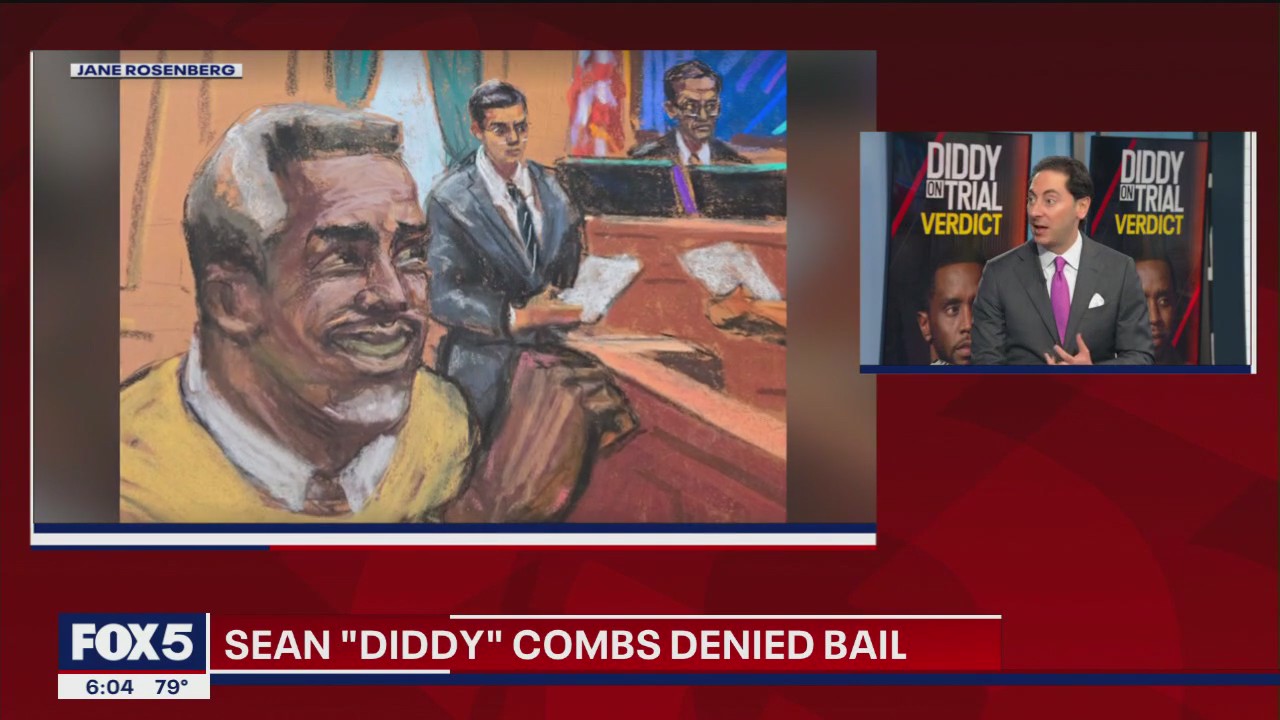
Diddy denied bail: Former prosecutor explains
"The judge clearly found that he has a propensity for violence." Criminal defense attorney and former prosecutor Seth Zuckerman explains why Sean "Diddy" Combs was denied bail.
The judge could issue concurrent sentences for each guilty count, meaning that Diddy could serve his sentence for each count at the same time, which would carry a maximum 10-year sentence.
Diddy could also be sentenced for each count separately, which would carry a maximum sentence of 20 years.
What’s next for Diddy?

Why was Diddy denied bail after mixed verdict?
"For present purposes, the defendant is unable to meet his burden" to show by clear and convincing evidence a "lack of danger to any person or the community," Arun Subramanian said. FOX 5 NY's Lisa Evers explains why Diddy was denied bail.
With the partial conviction and bail denial now on record, Diddy’s legal team is focused on minimizing prison time.
Both the defense and prosecution are scheduled to propose a joint sentencing plan by July 8.
The current sentencing date is October 3, but it may be moved earlier.
What happened during the Diddy trial?
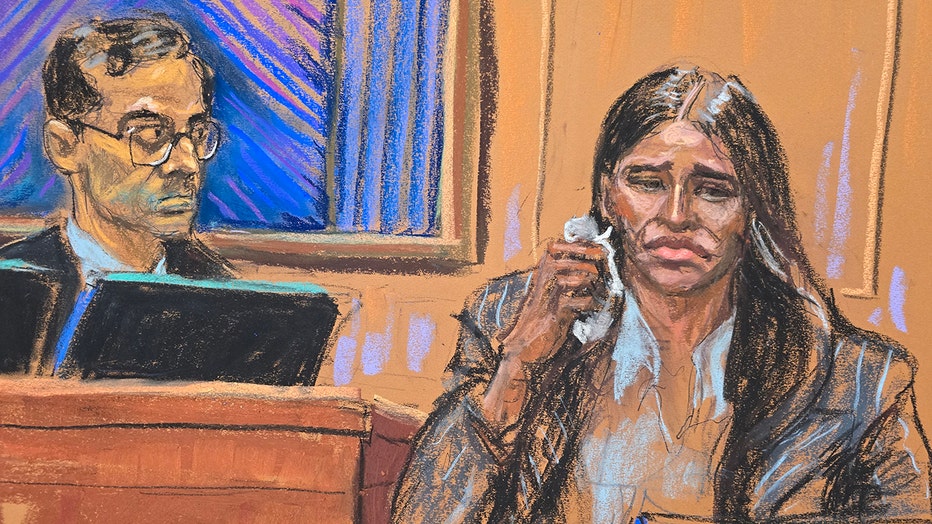
Cassie Ventura breaks down under redirect questioning as Judge Arun Subramanian looks on May 16, 2025.
The trial began with a video showing Sean "Diddy" Combs attacking his girlfriend Cassie, setting the stage for seven weeks of testimonies from 34 witnesses, including Cassie and another ex-girlfriend, Jane, who accused Combs of violent and abusive behavior.
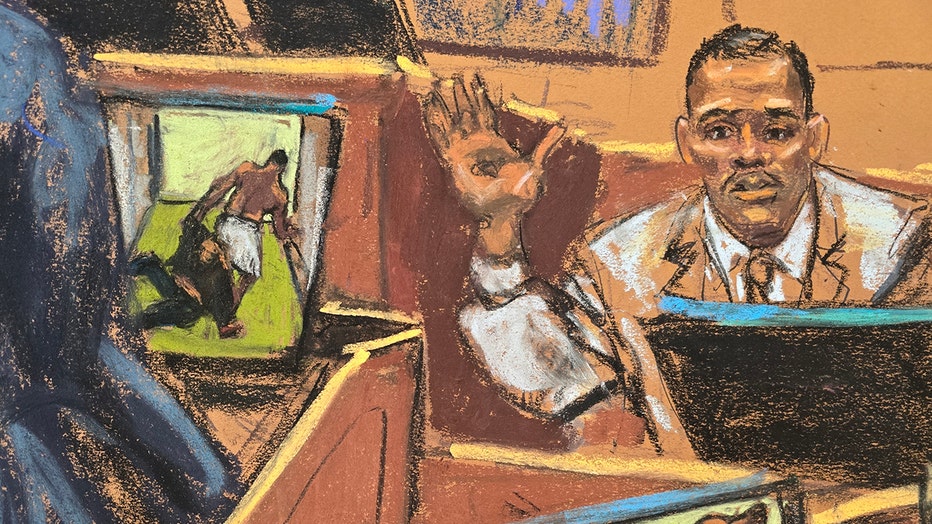
Cassie and Jane detailed instances of physical abuse and coercion into sexual activities, with Cassie describing "freak-offs" and Jane recounting feeling pressured due to financial dependency. Both women claimed Combs threatened to release sex videos if they didn't comply.
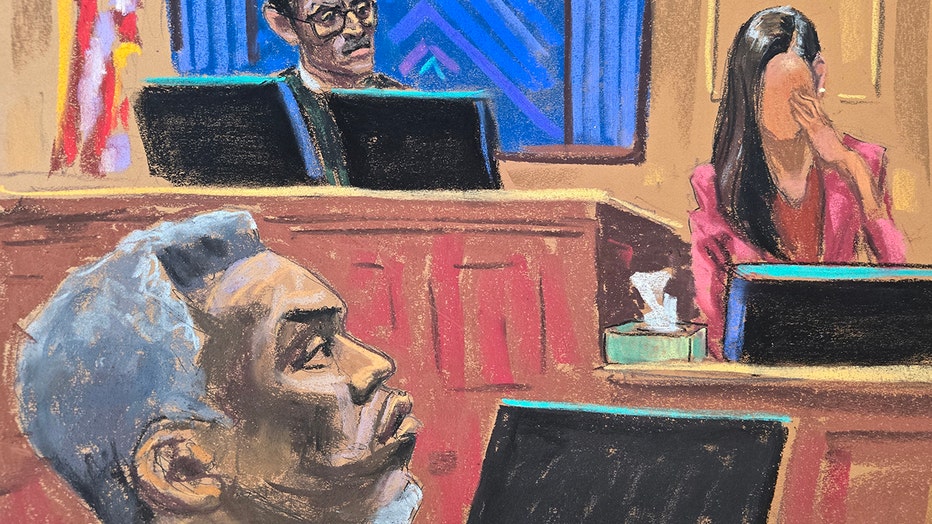
"Jane" continues her direct testimony.
Other witnesses, including rapper Kid Cudi and former employees, testified about Combs' violent behavior and threats, with accusations ranging from sexual assault to intimidation and property damage.

Rapper Scott "Kid Cudi" Mescudi arrives for the Sean "Diddy" Combs sex trafficking trial at Manhattan Federal Court on May 22, 2025 in New York City. (Photo by Michael M. Santiago/Getty Images)
Combs' defense focused on discrediting the prosecution's witnesses, highlighting inconsistencies in their accounts and their continued interactions with Combs post-abuse. The defense did not call any witnesses and Combs chose not to testify.
Originally, prosecutors built their case around four main witnesses: Cassie, Jane, Mia and Gina. Gina was dropped from the case, though they were mentioned during the trial. The defense leveraged the absence of these testimonies to question the prosecution's narrative.

